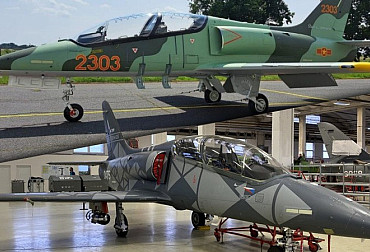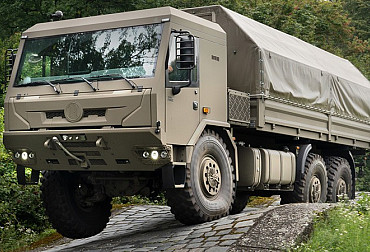The handlers of the Military Police once again proved that they belong to the top in cynology
Recently, the "Military Police Service Dogs in Explosives and Drugs Searching Competition" was held in Rančířov, which was attended by 21 handlers with their service dogs from different countries and units. Specifically, there were members of the Military Police from the Czech Republic, Poland and Germany. The Czech Republic was represented by the Army of the Czech Republic, the Castle Guard, the Police of the Czech Republic and the Prison Service. Slovakia was represented at the event by the Police Corps of the Slovak Republic, the Prison and Justice Guard Corps of the Slovak Republic and the Financial Administration of the Slovak Republic.
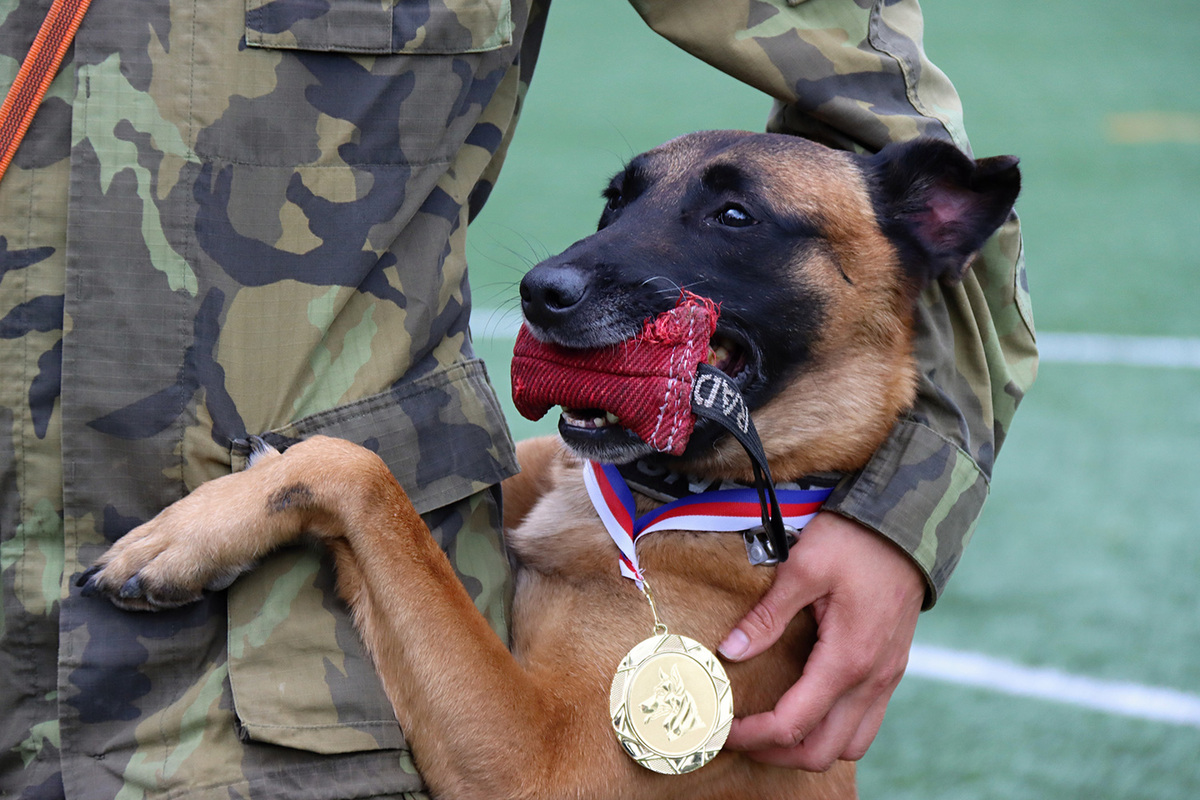
The aim of the event was to increase the professional level and readiness of handlers and service dogs for their practical performance of service To strengthen interdepartmental cooperation in the field of service cynology between the Military Police, other security forces of the Czech Republic and foreign partners and to present the capabilities of special service dogs and the possibilities of their use.
The base for the realization of the whole competition was the tent camp in Rančířov, which is primarily intended for the accommodation of troops in the framework of movements through the Czech Republic - the so-called "host nation support" The individual disciplines were then held in the village of Třešt' - on municipal land and on the grounds of the Secondary School and Secondary School, in Jihlava - in a transport company and on the training ground of the FM - DOG Jihlava Cynological Association, in Dobronín - on the grounds of the primary school and on a railway siding, and on the grounds of the ACR - ZÚ Rančířov.
The competition was held in two categories, namely in the search for explosives and in the search for drugs, where handlers with dogs had to find substances such as heroin, cocaine, methamphetamine, ecstasy, ephedrine, hashish, semtex, TNT, pentrite, black powder, etc. in various places within a time limit. In certain disciplines, a deceptive sample was used to make the dogs' work more difficult (e.g. tea, dishwasher tablets and various other substances) Another discipline, common to all participants, was obedience.
For a better idea, below is a description of the disciplines:
Search for drugs/explosives on buses
Each contestant was assigned a workstation with one bus. The inspection was done by external and internal inspection of the bus. Before starting the actual search, the handler could prepare the workplace by opening the bus door or by ventilating the interior passenger compartment and could only inspect the bus visually. It was not permitted to open lockers, dismantle engine components or other parts of the bus accessories, tamper with seats and other parts of the bus interior furnishings, or perform any other activity that would be directed toward the physical discovery of a drug/explosive sample. This activity was not permitted prior to the performance or during the actual search.
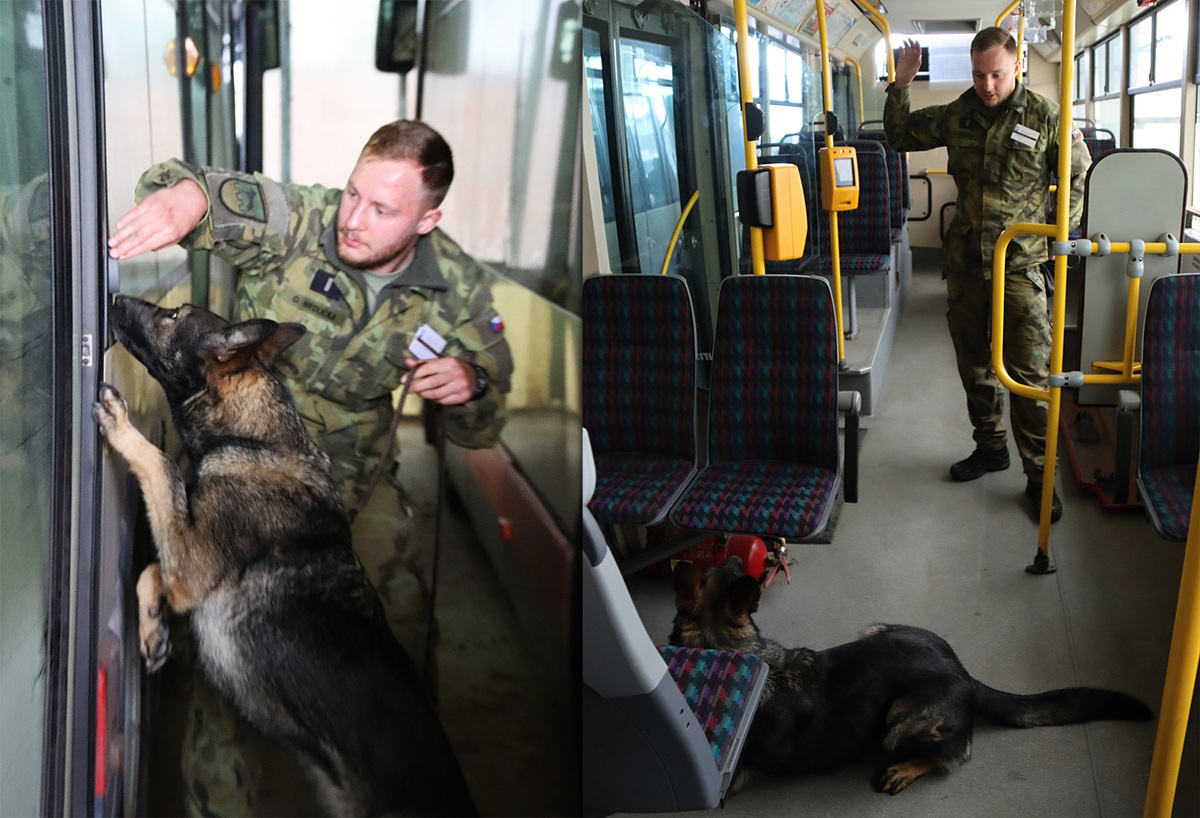
Search for drugs/explosives in trucks
Each competitor was assigned a workstation with two trucks, one of which was used to plant a drug/explosive sample and also to plant a so-called deceptive sample (food, cleaning products, feed, spices, etc.). The search was carried out by external inspection of both vehicles only. The handler was able to prepare the work area by only visually inspecting both vehicles before beginning the actual search. Again, it was not permitted to open lockers, boxes, plugs, closures, etc., or other parts of the truck accessories, or to perform any other activity that would be directed toward the physical discovery of a drug/explosive sample.
Searching for drugs/explosives on your own
Each competitor was assigned a workstation consisting of two separate rooms of approximately 20 square meters, with the sample based in only one of these rooms. The dog search was conducted independently without the handler being able to enter the room. The handler was only allowed to visually inspect the room from the area between the doors from which he sent the dog to search. While the dog was working independently, the handler stood between the doors without influencing the dog with commands or movements. If the handler influenced the dog with commands or movements, a point loss occurred. To be able to assess the quality of the dog's independence and endurance in this mode, the handler had to use the entire time limit allotted to search the room (3 minutes) until it expired or until a sample was found. The handler scanned each room separately, only once, and the dog's work was terminated when the sample was found or the time limit for that room expired.
Search for drugs/explosives in rooms
Each contestant was assigned one room to search - a school classroom. The search was carried out in the form of an internal search of the interior and equipment, including an inspection of all materials and items present in the designated classroom at the time. Before actually starting the work, the handler could make a visual orientation inspection of the classroom and, if necessary, ventilate the room or, on the contrary, prevent draughts. During the search, the handler was not allowed to open cabinets, move objects, manipulate chairs, or perform any other activity that would be directed toward the physical discovery of a drug/explosive sample.
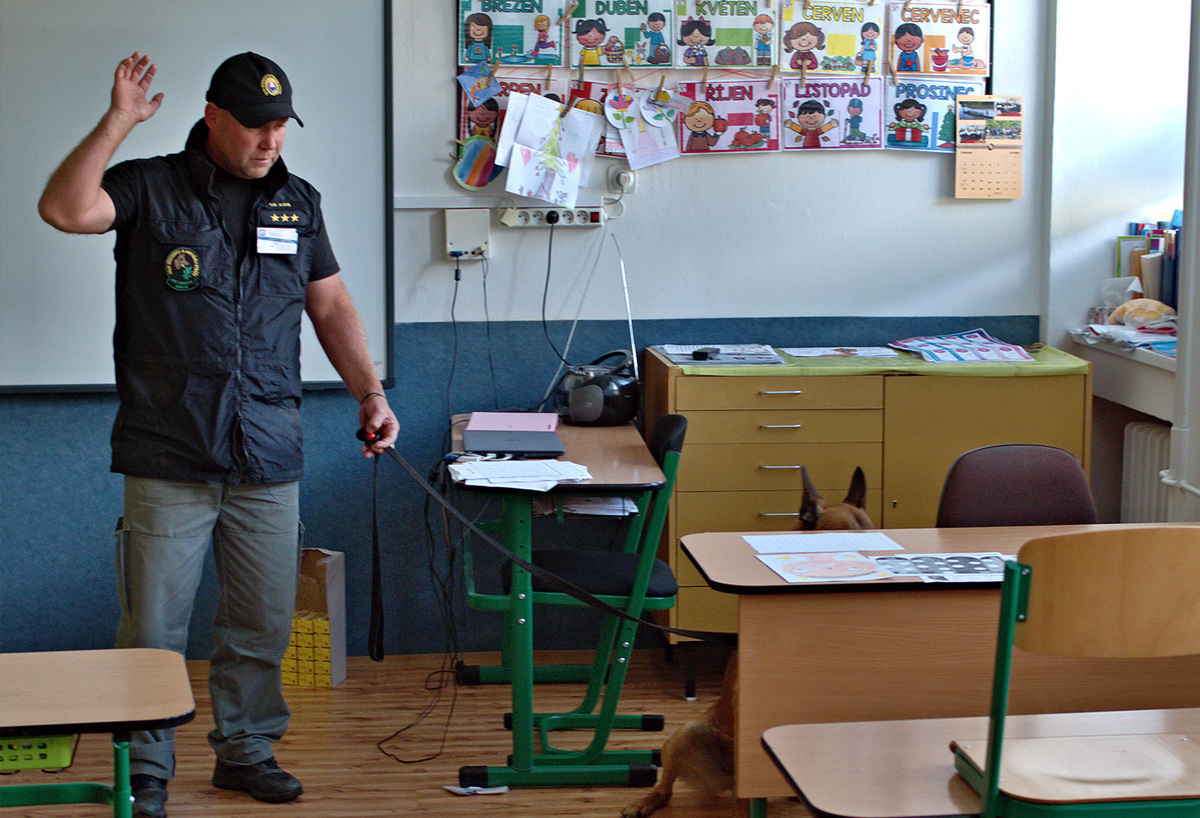
Searching for drugs/explosives in luggage
Each contestant was assigned a workstation with 8 suitcases lined up in a row, one of which contained a sample of the drug/explosive and also contained a so-called deceptive sample (food, cleaning products, feed, spices, etc.). Suitcases, bags and backpacks were used as luggage. The search was carried out in the form of an external check of the luggage and the handler was not allowed to open, move or otherwise tamper with the luggage. If the dog walked past the luggage containing the planted substance within 1 metre without being authorised and subsequently marked, this action was considered as the dog running away from the planted drug/explosive sample and assessed a point loss for gross error. If the dog ran to a different station than the handler was assigned by lot during the performance and the handler called the dog back to his station, the dog received a point loss for gross error. In the event that the dog ran to a different workstation than the handler was assigned by lot during the performance and marked a substance based at that incorrect workstation, the discipline was voided for the handler.
Searching for drugs/explosives in boxes
Each competitor was assigned a workstation with 8 wooden boxes lined up in a row, with a sample of the drug/explosive in one of the boxes. Ammunition and ammunition boxes were used. The search was carried out by means of an external inspection of the boxes and the handler was not allowed to open, move or otherwise tamper with the boxes in any way. If the dog passed by a box containing a substance within 1 metre of the box without authorising and then marking it, this action was considered as the dog running away from the drug/explosive sample and was assessed a point loss for gross error. If the dog ran to a different station than the handler was assigned by lot during the search and the handler called the dog back to his station, the dog received a point loss for gross error. In the event that the dog ran to a different workstation than the handler was assigned by lot during the search and marked a substance based at that incorrect workstation, the discipline was voided for the handler.
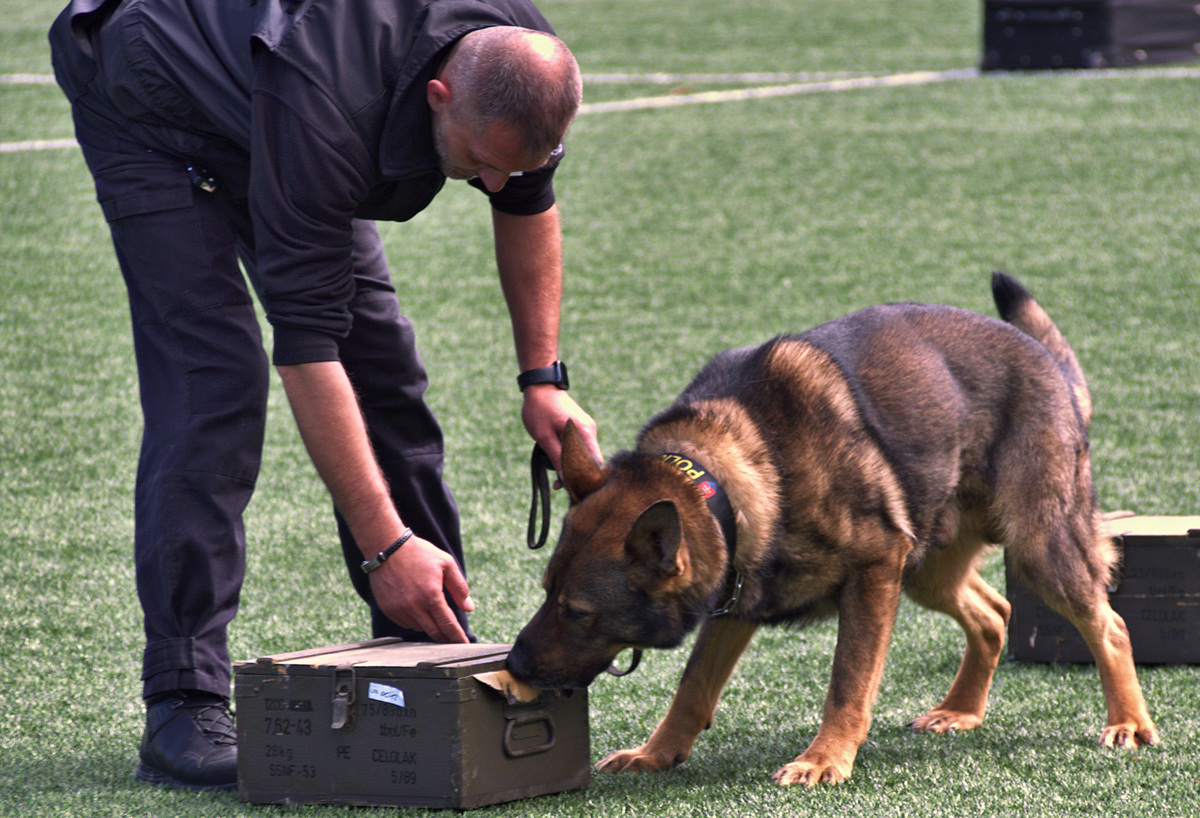
Search for drugs/explosives on persons
Each competitor was assigned a workstation with 8 people sitting on a chair, with one person being the basis of the drug/explosive sample. Persons were in a seated position individually on chairs, with hands resting on their thighs. The search was carried out in the form of an external inspection of the person, whereby the handler was not allowed to physically feel the person, unzip parts of the clothing (pocket flaps, hoods, scarves, etc.). The dog had to examine all parts of the clothing without jumping on the person or leaning on the person. If the dog leaned on the person or otherwise used the person's body to improve physical coordination while examining the upper parts of the person's clothing, the dog was penalized with a point loss for the gross fault "undesirable manner of movement". If the dog walked past the person on whom the sample was based within 1 metre without instructing and then marking the person, this was considered to be running away from the sample and therefore scored as a point loss.
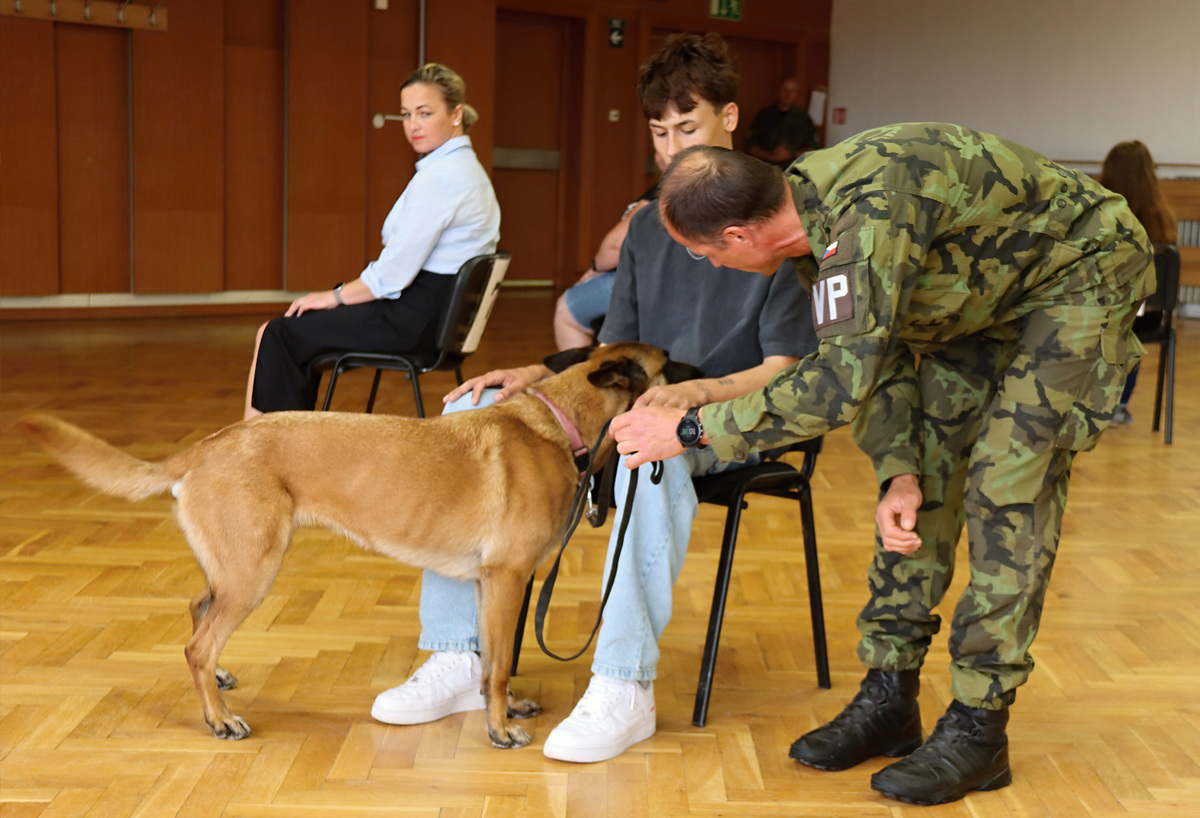
Area search for drugs
Each contestant was assigned a designated work area of 20 x 20 meters. The task of the pair was to investigate this area within the time limit and not to climb the based drug/explosive sample. The handler was allowed to visually familiarise themselves with the work area by going around the outer perimeter as far as possible before starting the actual search. The actual search of the area could be conducted either at large or on a leash, where these methods could be combined. In case the dog left the area, the handler was immediately obliged to guide the dog back to the defined area. If he failed to guide the dog back by the third command, the discipline was nullified. The commands to bring the dog back to the marked area had to be used by the handler immediately after the dog left the area. If the dog ran to a different area than the handler was assigned by lot during the exercise and the handler called the dog back to his area, he received a point loss for gross error. In the event that the dog ran to a different workstation than the handler was assigned by lot during the performance and marked a substance based at that incorrect workstation, the discipline was voided for the handler.
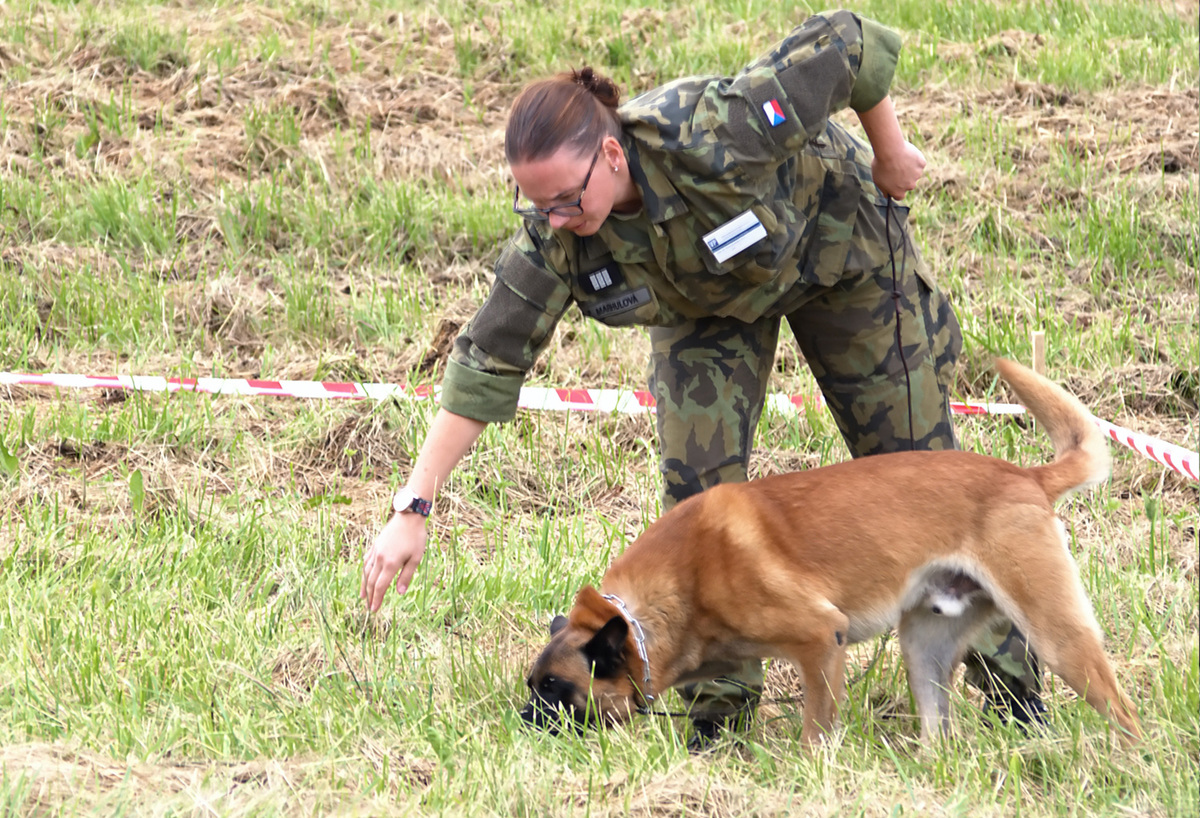
Explosives search on the track
Each contestant was assigned a workstation consisting of a section of track 30-50 sleepers in size. The inspection was carried out in the form of a check of the track area in the area specified by the judge. The task of the pair was to inspect this area and find the explosive sample within the time limit. The actual search of the area could be carried out either on the loose or on a leash and these methods could be combined. If the dog left the track area, the handler was immediately obliged to guide the dog back to the workplace. If he failed to guide the dog back by the third command, the discipline was nullified. The commands to bring the dog back to the designated area had to be used by the handler immediately after the dog left the area. If the dog ran to a different area than the handler was assigned by lot during the exercise and the handler called the dog back to his area, he received a point loss for gross error. In the event that the dog ran to a different workstation than the handler was assigned by lot during the performance and marked a substance based at that incorrect workstation, the discipline was voided for the handler. Likewise, a pair's performance was nullified if the handler stepped on the location of the planted explosive sample.
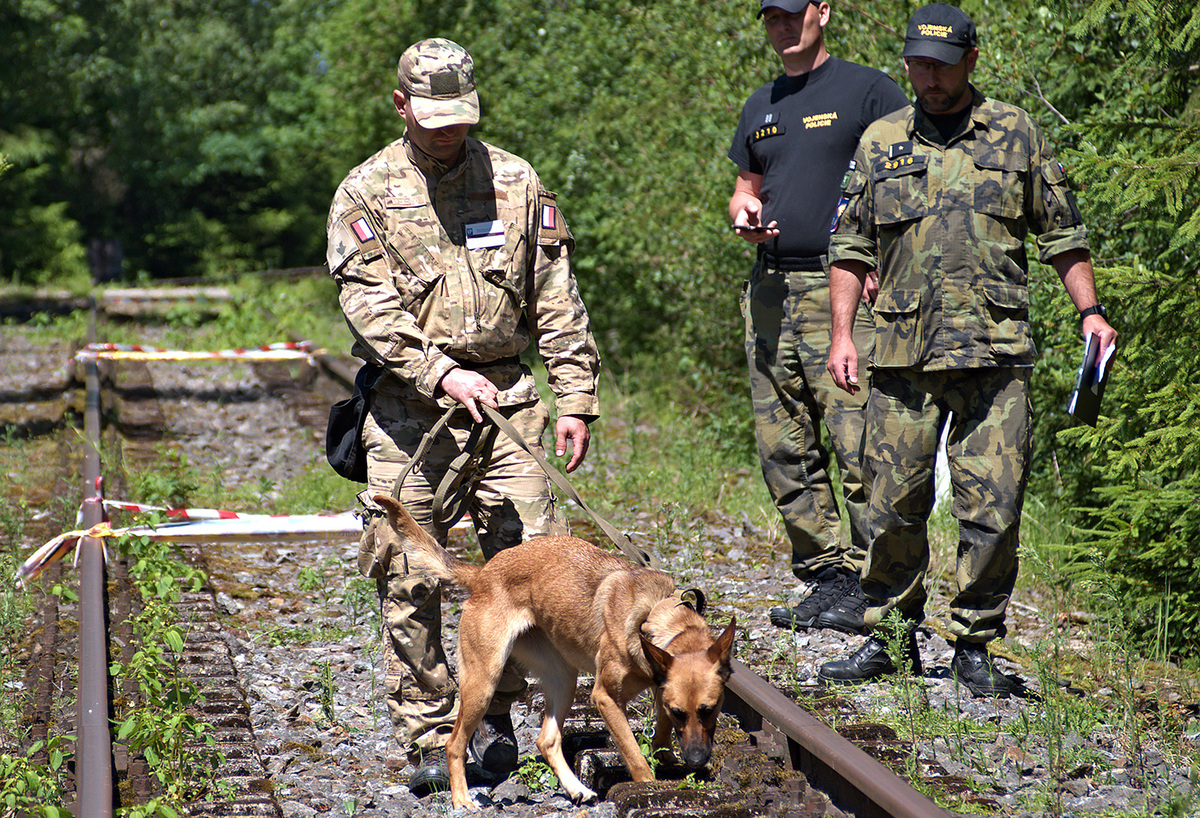
The handlers of the Military Police once again proved that they belong to the top in cynology
The evaluation of the overall work of the handler with the dog took into account the main criteria such as the interest, willingness and motivation of the dog to work; the independence, systematicness and accuracy of the dog's work; the persistence and reliability of the dog; the accuracy and endurance of its marking; the reaction to external distractions and the overall management of the dog by the handler, their interplay and cooperation. Judges and sample folders, from different components, carried out the evaluation to ensure maximum impartiality and fairness. The team consisted of two handlers with dogs, i.e. one handler with a drug sniffing dog and one handler with an explosives sniffing dog.
Below are the results of the Military Police Service Dogs in Explosives and Drug Search:
Individuals - drugs:
- 1st place Master Sergeant Martin Remsa – with dog BECKY – VeVP Tábor
- 2nd place Lieutenant Commander Bc. Denis Didi – with dog FERO – ZVJS SR
- 3rd place Warrant Officer Bc. Pavla Marhulová – with dog DAX – AČR (CVK Chotyně)
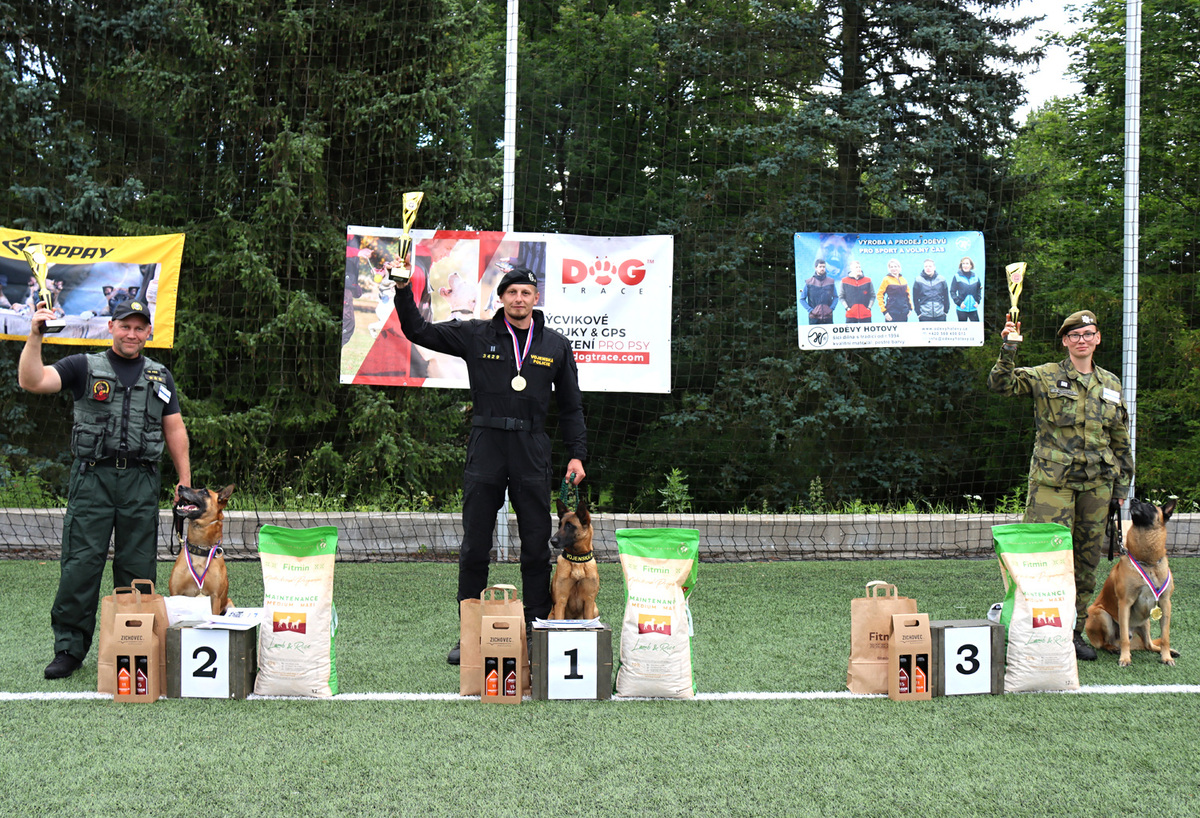
Individuals - Explosives:
- 1st place Master Sergeant Ondřej Skok – with dog EGO – VeVP Tábor
- 2nd place Master Sergeant Bc. Josef Suto – with dog CIRO – VeOSVP
- 3rd place Warrant Officer Miroslav Vánský – with dog DENNY – VeVP Olomouc
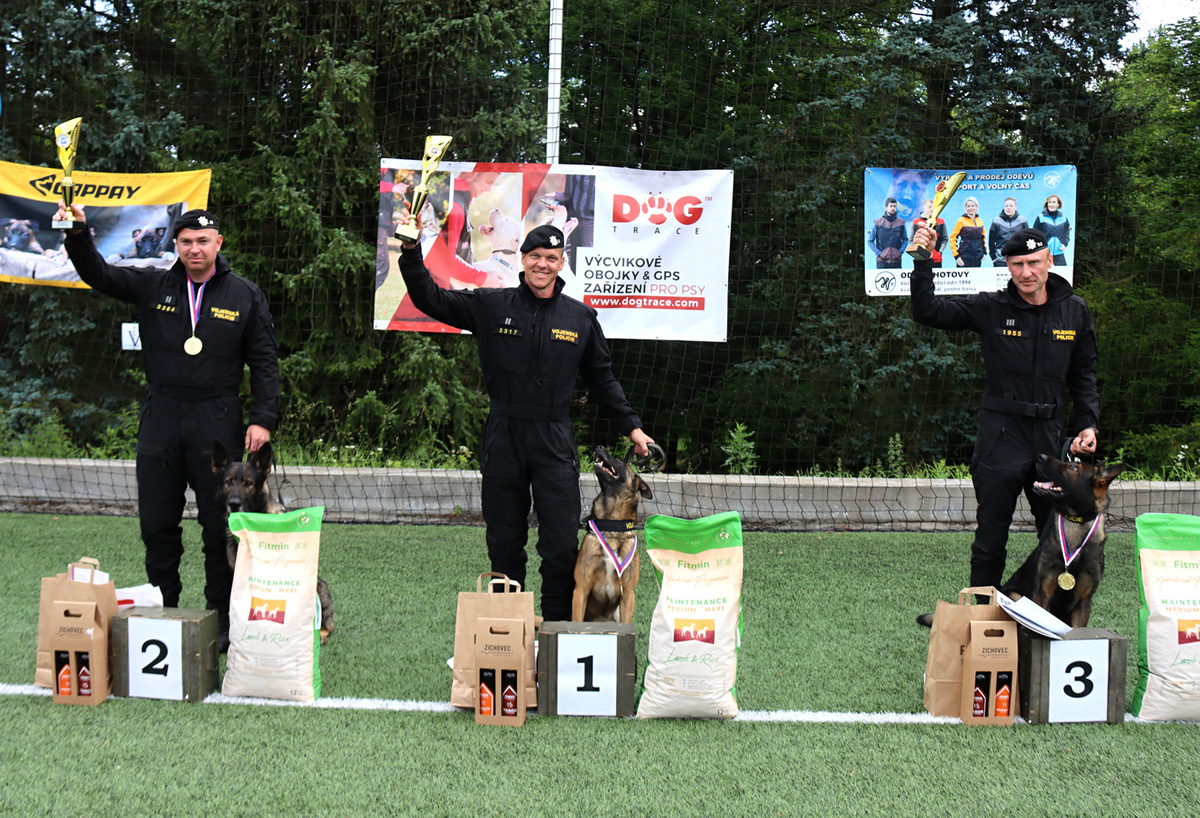
Teams:
- 1st place Military Police Headquarters Tábor
- 2nd place Military Police Headquarters Olomouc
- 3rd place Military Police Protective Service Headquarters
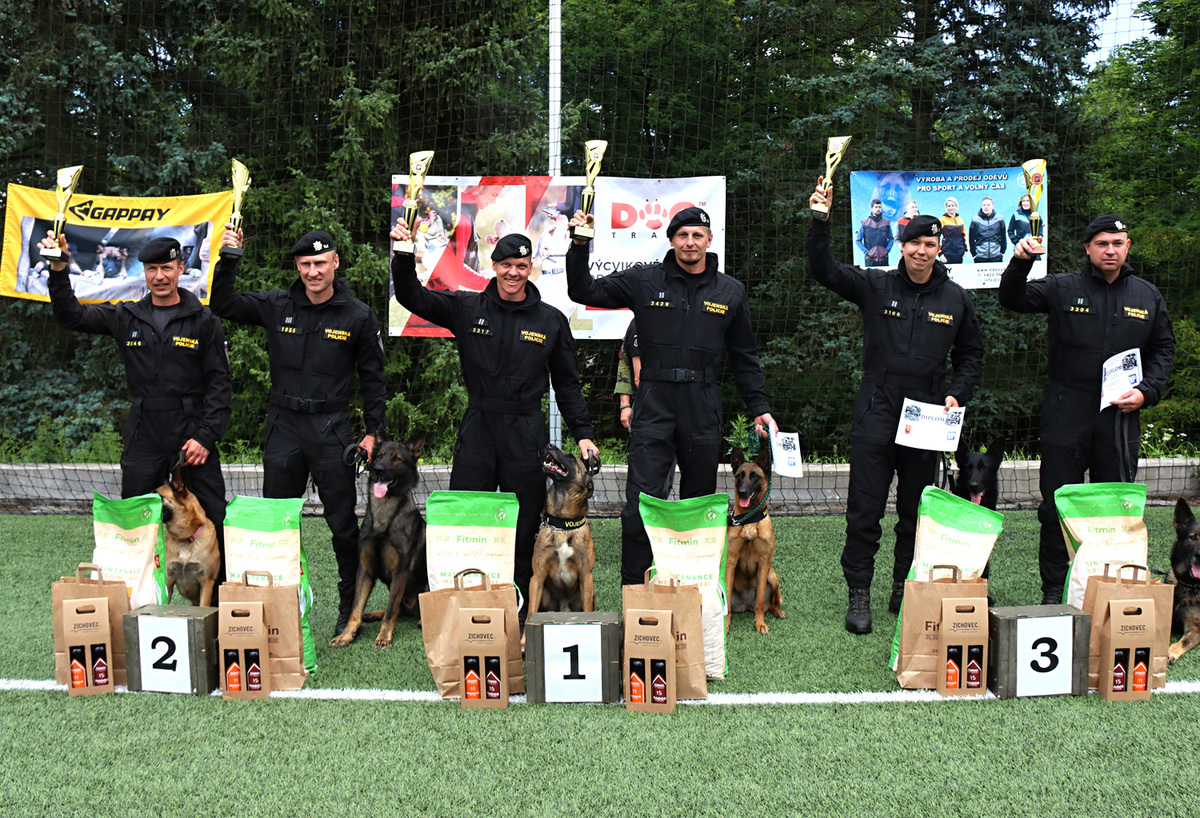
Best Obedience:
- Sergeant Vojtěch Hovorka – with dog Brit – Hradní stráž
Best foreign participant:
- Lieutenant Commander Bc. Denis Didi – with dog Fero – ZVJS SR
Best handler MP:
- Master Sergeant Martin Remsa – with dog Becky – VeVP Tábor
Absolute winner:
- Master Sergeant Martin Remsa – with dog Becky – VeVP Tábor















